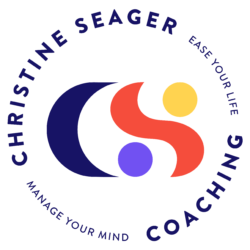You’re tired. Of course you are.
Long shifts. Tight staffing. Patients in pain. Charting that never seems to end.
But here’s the thing: not all tired is the same.
There’s the kind of tired that means you need to go to bed. Full stop. No phone, no Netflix, no late-night scrolling. You need a real nap, or an actual full night of sleep. The kind of rest that lets your body reset.
And then there’s the kind of tired that comes from thinking, “I’m so tired.”
You think it all day long. Between patients. On the drive home. Standing in your kitchen staring into the fridge. It loops in your brain like a song stuck on repeat.
The more you think it, the more exhausted you feel.
And it’s not fake. It’s just a different kind of tired.
Mental tiredness matters. But here’s the twist: it’s often self-created by our thinking—and it responds to a different kind of care.
So how do you know which tired you’re dealing with?
Start with what I lovingly call your B.S.-O-Meter.
Be honest: are you really tired? Or are you kind of B.S.-ing yourself?
Here are two questions that can help:
- Do I need to go to bed right now?
If the answer is yes, then go to bed. To sleep. Not to lay down and scroll. You’ll be amazed what 20 minutes of real rest can do. - If my spouse walked in right now and said, “Pack your bags—we’re leaving in an hour for a week-long all-inclusive trip to Fiji,” would I still be too tired… or would I rally and make it happen?
That question is a surprisingly effective gut check.
If you’d find the energy to grab your passport and toss clothes in a bag, it’s probably not physical exhaustion—it’s mental overload.
And if you wouldn’t? That’s a cue your body really is really and truly asking for rest.
You can trust yourself to know what you need.
You’ve been doing hard things for a long time. You know how to listen to your body. You know when your brain is the one keeping you stuck.
The next time you catch yourself repeating, “I’m so tired,” ask again:
Is this physical fatigue? Or is it mental weight I’ve been carrying around all day?
Then do the kindest thing for yourself.
That’s how you start to feel better. That’s how you build trust with yourself. That’s how you reclaim your energy—one honest check-in at a time.
P.S. Coaching helps with this. I teach nurses how to hear themselves clearly and get their energy back—mentally and physically. If you’re a Logan Health employee, this is already a benefit you have access to. If you’re not, book a consult (grab any time that works for you here) to chat about what working together could look like.
